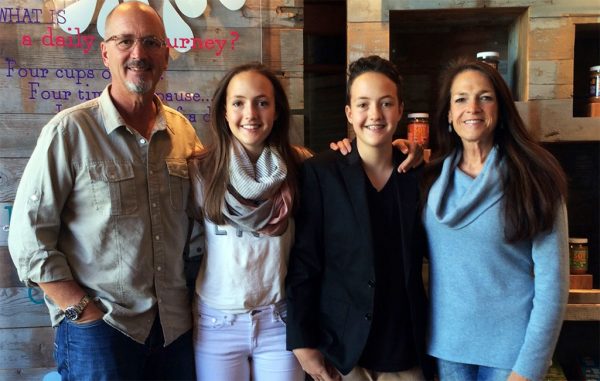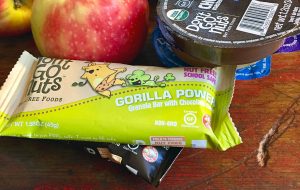For a Salida family, the kernel for what is now a $3 million food manufacturing business was two terrifying allergic reactions their daughter had from peanuts.
Jane Pinto and her husband Doug started Don’t Go Nuts in 2012 after their daughter, Lily, experienced a second reaction from her severe peanut allergy.
The company makes peanut-, tree nut- and gluten-free snack bars and spreads geared toward kids.
The Don’t Go Nuts brand is housed under Pinto’s company Pinto Barn, which recently raised $2 million from an Oklahoma investment firm out of a planned $5 million capital raise. The money will go toward new equipment, increasing sales and adding new products.
“We feel like it will triple our sales growth in 2018,” Pinto said.
The company employs 30 people and projects revenue of $3 million for 2017, Pinto said.
After interviewing co-packers to produce the nut-free snacks, Pinto decided to build her own facilities to ensure there was no cross contamination.
“If you’ve ever witnessed a life-threatening anaphylaxis episode, you would know why trust is the No. 1 thing that’s important to me,” she said.
The 10,000-square-foot workshop in Salida sits on 3 acres that can accommodate an additional 25,000 square feet of production space. It includes a dusting room to ensure no nuts make it in.
Pinto also controls input by contracting with producers that pledge they are nut free.
“They have to commit. We cannot risk cross contamination,” Pinto said.
The bars and soy spreads are sold online and in more than 3,000 stores, with plans to expand to 5,000. A package of 12 snack bars sells on its website for $22. The company potentially will add granola clumps, cereal or cookies in the future, Pinto said.
Pinto is chasing a growing market. The number of kids with peanut allergies more than tripled in a decade, from 0.4 percent in 1997 to 1.4 percent in 2008, according to a study by food allergists at Mount Sinai Hospital in New York City.
The couple sold their real estate company Pinon Real Estate Group to start and fund Pinto Barn.
Pinto said it was hard finding nut-free foods a decade ago, and there was a stigma around being pesky about nut allergies. But things have changed with education and understanding.
“We aren’t being helicopter parents – it’s truly about our children’s lives,” she said.
For a Salida family, the kernel for what is now a $3 million food manufacturing business was two terrifying allergic reactions their daughter had from peanuts.
Jane Pinto and her husband Doug started Don’t Go Nuts in 2012 after their daughter, Lily, experienced a second reaction from her severe peanut allergy.
The company makes peanut-, tree nut- and gluten-free snack bars and spreads geared toward kids.
The Don’t Go Nuts brand is housed under Pinto’s company Pinto Barn, which recently raised $2 million from an Oklahoma investment firm out of a planned $5 million capital raise. The money will go toward new equipment, increasing sales and adding new products.
“We feel like it will triple our sales growth in 2018,” Pinto said.
The company employs 30 people and projects revenue of $3 million for 2017, Pinto said.
After interviewing co-packers to produce the nut-free snacks, Pinto decided to build her own facilities to ensure there was no cross contamination.
“If you’ve ever witnessed a life-threatening anaphylaxis episode, you would know why trust is the No. 1 thing that’s important to me,” she said.
The 10,000-square-foot workshop in Salida sits on 3 acres that can accommodate an additional 25,000 square feet of production space. It includes a dusting room to ensure no nuts make it in.
Pinto also controls input by contracting with producers that pledge they are nut free.
“They have to commit. We cannot risk cross contamination,” Pinto said.
The bars and soy spreads are sold online and in more than 3,000 stores, with plans to expand to 5,000. A package of 12 snack bars sells on its website for $22. The company potentially will add granola clumps, cereal or cookies in the future, Pinto said.
Pinto is chasing a growing market. The number of kids with peanut allergies more than tripled in a decade, from 0.4 percent in 1997 to 1.4 percent in 2008, according to a study by food allergists at Mount Sinai Hospital in New York City.
The couple sold their real estate company Pinon Real Estate Group to start and fund Pinto Barn.
Pinto said it was hard finding nut-free foods a decade ago, and there was a stigma around being pesky about nut allergies. But things have changed with education and understanding.
“We aren’t being helicopter parents – it’s truly about our children’s lives,” she said.



Leave a Reply